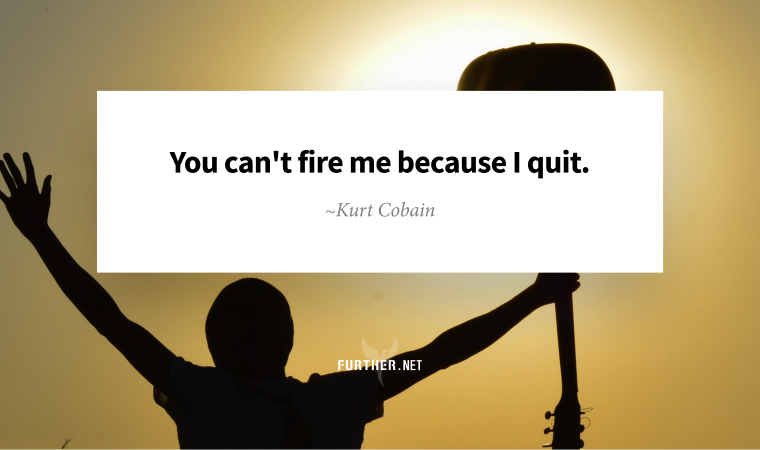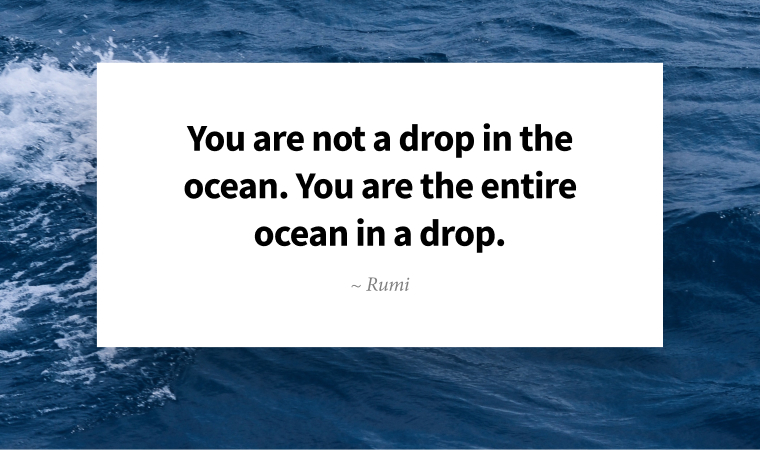
Steve Jobs gave a famous commencement speech at Stanford in 2005 that has been summed up as “Follow your passion.” Here’s what Jobs actually said:
You’ve got to find what you love…. The only way to do great work is to love what you do. If you haven’t found it yet, keep looking, and don’t settle.
At this stage of your life, you might be thinking you need to shift toward work that you’re passionate about. The career you have may have led to success, recognition, and a good living for you and your family, but most people don’t do work that they are truly passionate about.
But in a poignant clarification at the end of his life, Jobs told his biographer Walter Isaacson:
It’s not all about you and your damn passion. You need to get out there and make a dent in the universe.
In other words, do something meaningful for others. But it also should be meaningful to you. And the proper “p” word for that is purpose, not passion. In other words, something that drives you to get up every morning and keep going.
The root of your sense of work purpose is at the intersection of what you’re good at (your expertise and experience) and what people will pay you for. But when you add in a way to apply your experience in a new way that truly interests you, then it’s perfectly possible to develop a passion:
“Finding” a passion implies that it already exists fully formed and is simply waiting to be discovered. Unfortunately, this idea doesn’t square with what science tells us. Instead passions, like interests, are developed.
The starting point: What do you find interesting that you are also uniquely good at?
Through a process involving repeated engagement, positive experiences and accrued knowledge, people can come to personally value that content or activity and internalize it. What was at first interesting becomes an interest. If these qualities continue to intensify, a passion can emerge.
I personally believe most people don’t really want to retire. They just want to quit doing what they’ve been doing and do something more fulfilling.
So don’t worry about finding your passion. Just try new interesting things and there’s a good chance a passion will find you.
Further Exploration:
Stop Trying to ‘Find’ Your Passion — There’s a Better Way to Love What You Do
Keep going-
P.S. New to Further? Join us here.
Resist the Resistance
With Type 2 diabetes becoming a more common threat, you’ve likely heard of insulin resistance, which increases with age. But what exactly is insulin resistance and how do you know if you have it?
What Is Insulin Resistance and How Do You Know if You Have It?
Good Day Sunshine
First fat was bad, now there’s good fat. Then eggs were bad, now they’re not. And for years we’ve been told to avoid sun to prevent skin cancer. But research suggests a dose of rays can boost your immune system and increase lifespan.
Let it Shine: The Unexpected Benefits of Sun Exposure on Skin
Lost in Transition
52% of preretirees in the Retirement Perspectives and Attitudes Survey said they thought the transition to retirement would be smooth. By contrast, only 32% of retirees surveyed said it was.
What Will Retirement Really be Like? Most People Have No Idea What’s Coming
Exercise Your Rights
The world’s first known book on exercise was written almost exactly two millennia ago. But the rise of Christianity dictated that the body was sinful, and so the notion of exercise fell out of the popular imagination for a millennium. And then, in the sixteenth century an Italian physician took it upon himself “to restore to the light the art of exercise.”
How the Art of Exercise Was Born, Lost, and Rediscovered
In Pursuit of Mattering

By Trudi Roth
You don’t have to be a fan of The Bachelor to be intrigued by its latest iteration: The Golden Bachelor, where 22 women ages 60+ are vying for a 72-year-old widower.
The quest for love is always a crowd-pleaser — as are the catfights — but with this version, the most dramatic moments come from the contestants’ backstories. As showrunner Bennett Graebner told the Washington Post:
One thing that we kept hearing from the women is that they think they don’t feel seen at this age,” Graebner says. “They don’t feel seen in their private lives or their public lives.
This is a critical loss: research shows feeling valued is a basic human need. In other words, “mattering” matters.
The Root of the Matter
Here at Further, meaning and purpose are core themes. Add a sense of personal significance, and you have what it takes to forge ahead. Well-being expert and co-author of How People Matter, Isaac Prilleltensky, defines “mattering” as:
Feeling valued and adding value.
Mattering goes beyond self-esteem or merely belonging — it’s about being heard, appreciated, and feeling like you’d be missed if you weren’t around. Note that a sense of significance isn’t just something you get from others; it’s also a worthy existential pursuit to help you understand the importance of your place in the world.
Take Mattering Into Your Own Hands
There are loads of reasons why you might feel as if you don’t matter so much, from family of origin baggage to discrimination or other unfair treatment. But that doesn’t mean you can’t cultivate feeling significant. Here are a few ways to develop and enhance your self-worth:
- Focus on your strengths: What are you good at that you choose to do because it feels good? That’s the formula positive psychologists recommend you use to define your strengths; once you know what they are, play to them.
- Examine your professional life: Where do you feel capable, commanding, and valued? And when do you feel overlooked and underappreciated? If the latter is your norm, consider finding a new job or clients.
- Assess your personal life: Prioritize letting others know you appreciate them, and choose to spend time with those who reflect that mattering back to you.
- Volunteer: Being cause-driven can help support your feeling significant and essential.
- Practice self-compassion: You can’t demand that others value you (although you can speak up when you’re marginalized). But you can acknowledge that feeling insignificant feels bad and gently question the thought that you don’t matter.
Significance is subjective, so don’t leave it up to others to imbue your presence with meaning and value. Believing in yourself is core to your health and well-being; supporting those two aspects of your life is what ultimately matters.
Want to Believe in Yourself? ‘Mattering’ Is Key. (New York Times gift article)
further: flashback

ABC – Be Near Me
How to Be a … Zillionaire!, 1985
ABC’s debut album The Lexicon of Love had some strong singles, including Poison Arrow and The Look of Love. But it was Be Near Me from the third album that became their biggest U.S. hit, breaking into the top 10 on the charts. (YouTube)
further: sharing

Further subscribers who share the newsletter with friends can gain three months of access to our exclusive membership community Well + Wealthy with only five referrals. Get your own free weekly dose of health, wealth, travel, and happiness advice here, and find out all the details on our referral program.
Thank you for sharing Further!
